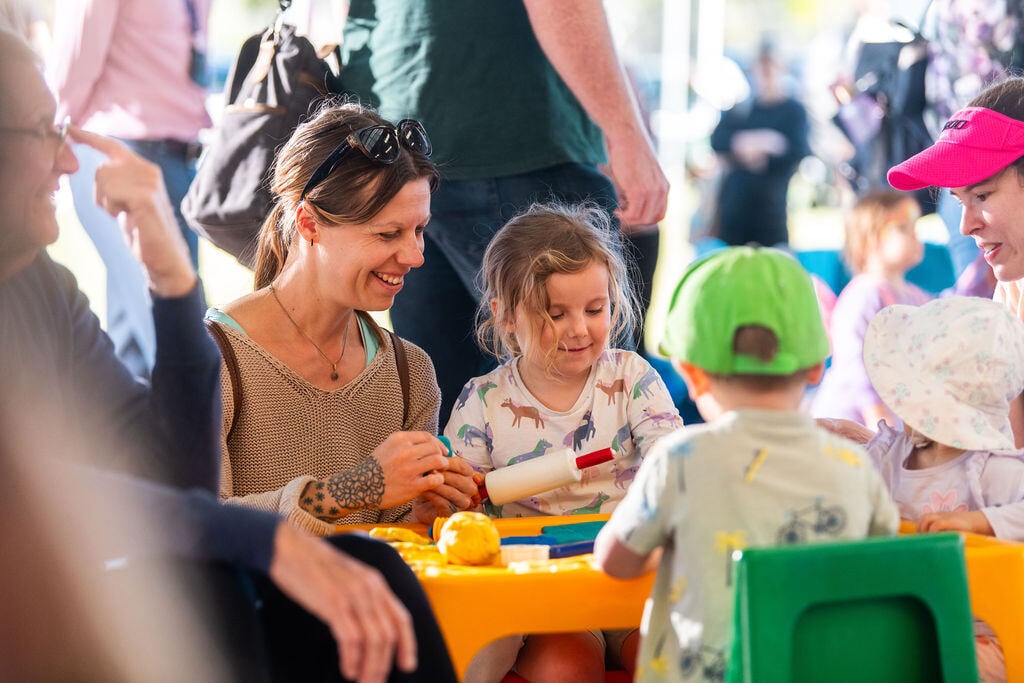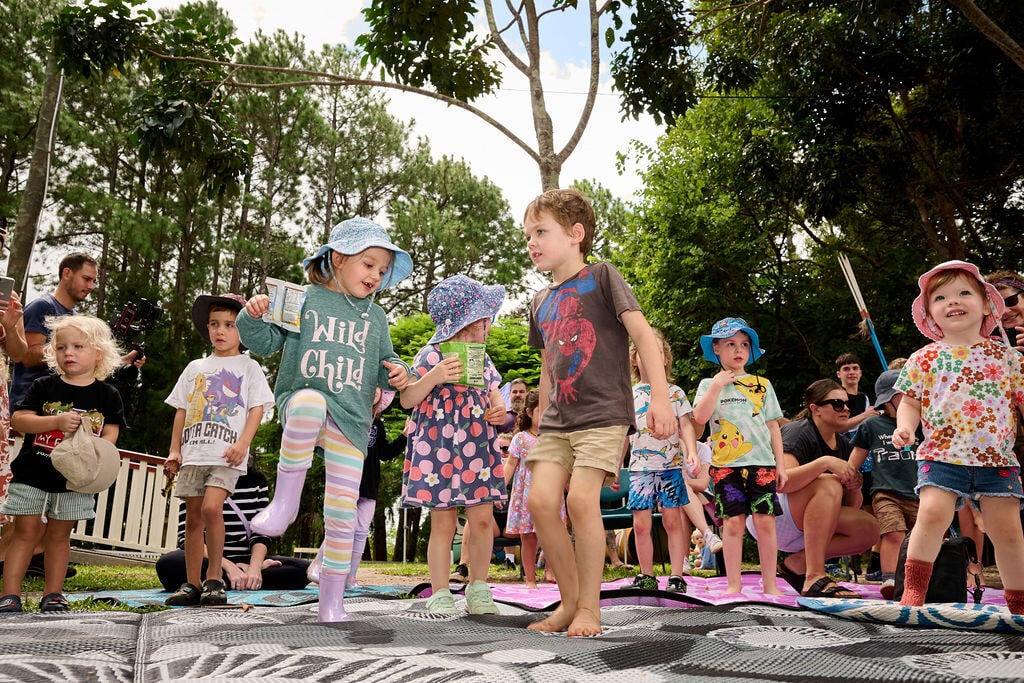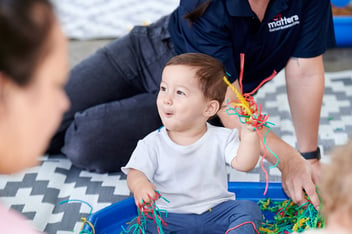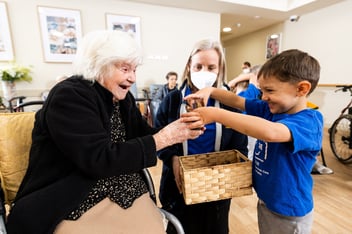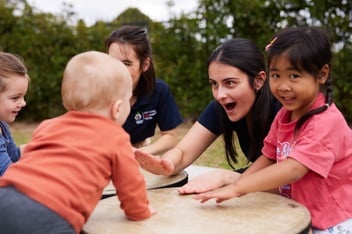
Sprouting Sustainability: Gardening Helps Build Eco-Friendly Habits
Blog > Sprouting Sustainability: Gardening Helps Build Eco-Friendly Habits

Sprouting Sustainability: Gardening Helps Build Eco-Friendly Habits
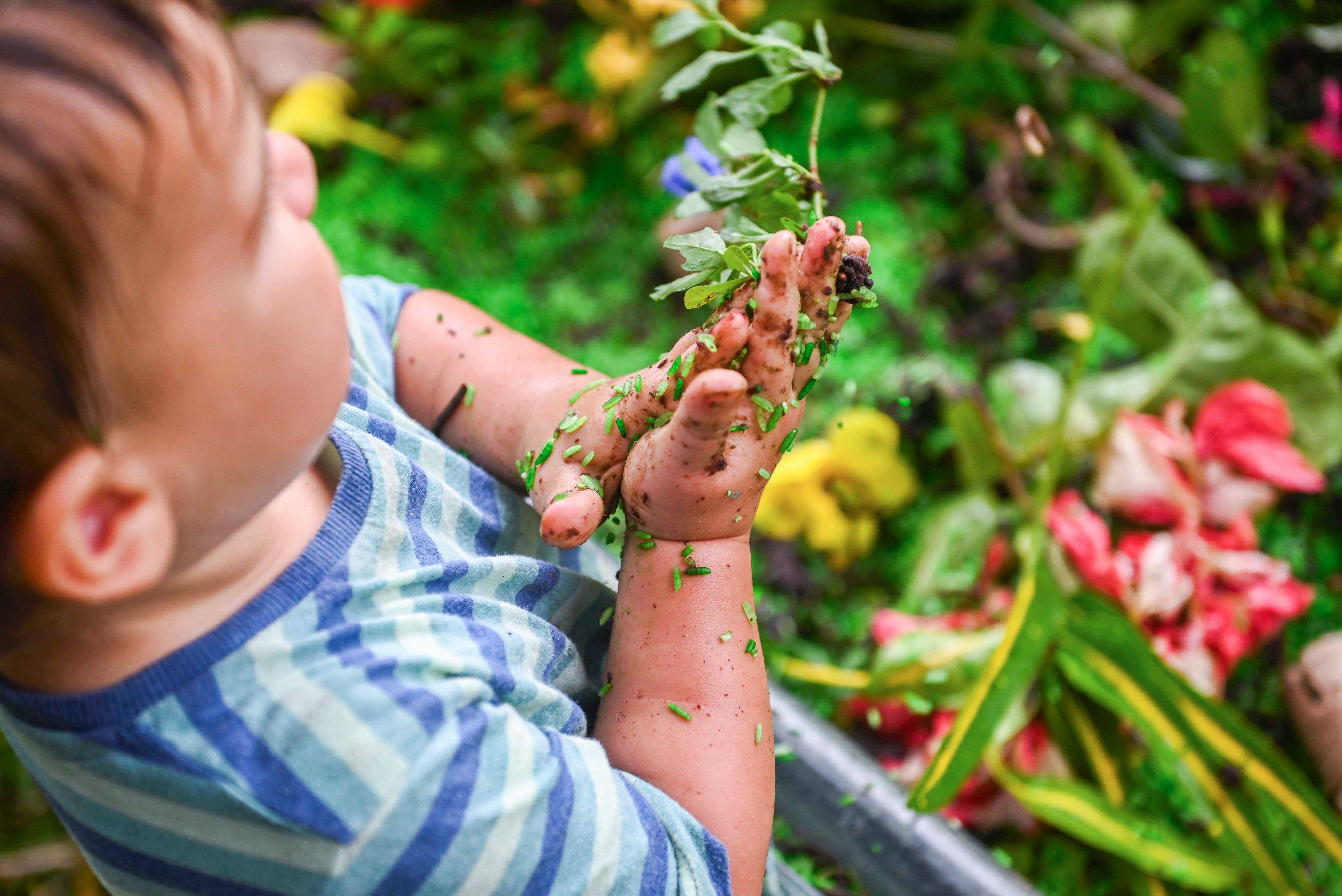
Children are natural gardeners - and anyone who has seen their delight in watching seeds grow into plants will agree it makes the mess and effort worthwhile!
Gardening with children, whether you have a community plot, a few pots on a windowsill or balcony, or a backyard garden, is a fun and educational way to help connect them with nature. This activity introduces young minds to the wonders of the natural world while teaching them about sustainability. Through gardening, children learn where their food comes from, the basics of plant life cycles, and the importance of biodiversity—all while growing clean, chemical-free produce. Gardening also encourages cooperation and responsibility as children work together to care for their plants. In line with the Children's Week theme for 2024, inspired by UNCRC Article 24, these experiences support children's right to good health, nutritious food, and a clean environment. By starting these activities early in life, we inspire a lifelong appreciation for nature and healthy living.
Growing Minds with Plants: The Benefits of Gardening for Young Children
Gardening offers a multitude of benefits that make it an ideal activity for young children. It supports their physical and emotional development by promoting outdoor play and exercise, which enhance fine motor skills and coordination. Spending time in nature also reduces stress and improves mood, contributing to overall well-being.
Cognitively, gardening encourages curiosity and exploration. Children develop problem-solving skills as they observe plant growth and respond to changes in their garden. This hands-on learning builds a foundation for scientific thinking by introducing concepts like plant life cycles and ecosystems.
Socially, gardening fosters teamwork and communication. As children work together to care for their plants, they learn to share responsibilities and celebrate achievements, enhancing their social skills (Growing from Gardening). These experiences not only support children's development but also lay the groundwork for a deeper understanding of sustainability.

Cultivating Clean Food and Chemical-Free Gardening
Children have a right to a clean and safe environment, and gardening provides an excellent way to teach them about this fundamental principle, and how they can start to shape the world around them. Gardening teaches children about clean food production and the importance of chemical-free practices, which contribute to both personal health and environmental sustainability.
When children participate in growing their own herbs, fruits and vegetables, they learn about the benefits of consuming fresh, organic produce. This hands-on experience helps them understand where their food comes from and encourages them to try new foods. By avoiding synthetic pesticides and fertilizers, children learn about maintaining soil health and protecting local ecosystems.
Gardening is a great way to introduce children to life cycles and natural pest control methods, such as using companion planting techniques. For example, planting marigolds alongside vegetables can deter pests naturally. This approach teaches children about biodiversity and the interdependence of plants and insects in a garden ecosystem.
A natural extension of the planting and harvesting side of gardening is linking it back to the kitchen and involving children in composting activities to recycle kitchen scraps into nutrient-rich soil amendments. This not only reduces waste but also enriches the garden soil, demonstrating the cycle of organic matter and its role in sustainable gardening practices (Victorian Early Years Learning and Development Framework). Through these practices, children develop an appreciation for clean food production and learn how their choices can positively impact the environment.
.jpg?width=1024&height=683&name=Sunshine%20Coast%20MPM%202024%20Web%20Res%20(142).jpg)
Passing Down Green-Thumbed Secrets
Gardening is a wonderful way to bring different generations together, fostering learning and connection among family members and the community. This shared activity enhances the gardening experience for children and enriches their understanding of sustainability.
Sharing Knowledge and Traditions: Involving grandparents or older community members in gardening projects allows children to learn traditional gardening techniques and cultural practices. Getting involved in local Indigenous farming and cultivation programs is also a great way to see how First Nations peoples work sustainably with the land, seasons and plants to grow food that is low cost, low waste and taps into their knowledge of Country. This exchange of knowledge not only strengthens family bonds but also preserves valuable cultural heritage (Belonging, Being & Becoming: The Early Years Learning Framework for Australia).
Building Community Connections: Community gardens provide a space for families to come together, share resources, and collaborate on gardening projects. These interactions enhance social skills and create a sense of belonging, as children see the positive impact of working together towards common goals (ABC Education).
Learning Through Storytelling: Encourage older generations to share stories about their gardening experiences or environmental changes they have witnessed. This storytelling can inspire children and provide them with a deeper understanding of the importance of caring for the environment (Victorian Early Years Learning and Development Framework). We’ve included a list of books about gardening and cross-generational connections to the land at the end of this article.

Implementing Sustainable Gardening Programs in Playgroups
Introducing sustainable gardening programs in playgroups can be both rewarding and educational, providing children with hands-on experiences that foster environmental awareness and responsibility. Here are some practical steps to get started:
Start Small and Simple: Begin with container gardens or small raised beds that are easy for young children to manage. This approach allows children to participate actively without being overwhelmed. Use recycled materials, such as old containers or pallets, to create planting spaces, teaching children about reusing resources.
Choose the Right Plants: Select plants that are suitable for your local climate and easy for children to grow, such as herbs, beans, peas, lettuce, or cherry tomatoes. These plants provide quick results, keeping children engaged and motivated.
Family Planting Activity: Organize an event where families can bring seeds and containers to the playgroup for a communal planting activity. This can be tied to special occasions like Mother's Day or Father's Day, where children grow seedlings as gifts. This activity not only involves families in the gardening process but also emphasizes the joy of giving something nurtured with care.
Integrate into the Curriculum: Use gardening activities to teach various subjects. For example, measure plant growth to introduce basic math concepts, or discuss the life cycle of plants to explore biology. The Australian Children’s Education and Care Quality Authority (ACECQA) provides guidance on incorporating sustainability into early childhood education.
Encourage Family Involvement: Invite parents and family members to participate in gardening activities or volunteer days. This involvement strengthens community ties and reinforces the importance of sustainability at home.
Celebrate Successes: Host events where children can showcase their gardens and share what they've learned with their families and peers. Celebrating these achievements encourages a sense of pride and accomplishment.
Gardening with young children is a powerful way to teach sustainability, fostering a lifelong appreciation for nature. Through activities like growing chemical-free food and engaging in intergenerational projects, children learn cooperation, responsibility, and environmental stewardship.
Sustainable gardening programs in playgroups offer hands-on experiences that connect children with their environment. These programs encourage curiosity and teach important concepts like biodiversity and resource conservation. Involving families in activities such as communal planting events strengthens community bonds and highlights the joy of nurturing plants together.
Celebrating achievements, like a child's first harvest, reinforces these valuable lessons and inspires continued exploration of the natural world. By integrating these practices into playgroups, we support children's development and uphold their right to a clean and safe environment, planting the seeds for a more sustainable future.
Garden Tales: Inspiring Reads for Little Green Thumbs
Sharing books about gardening and caring for nature across generations is a great way to reinforce the connections between children and the natural world they live and play in.
We love these books:
"Playground" by Nadia Wheatley
This anthology includes stories from Aboriginal and Torres Strait Islander people, highlighting the connection between generations through shared experiences in nature, such as gathering bush tucker and participating in ceremonies. It emphasizes the importance of community, respect, and sharing.
"Our Island" by Alison Lester and Elizabeth Honey
In collaboration with the children of Mornington Island, this book celebrates the natural beauty of the island and the connection between its people and the land. It reflects on how different generations experience and interact with their environment.

"Isabella’s Garden" by Glenda Millard and Rebecca Cool
This story follows the seasonal changes in a garden, illustrating how each generation can appreciate and contribute to the cycle of nature. The rhythmic text and vibrant illustrations make it engaging for young readers. This is also available as a board book for babies and toddlers.
"Grandma and Grandpa's Garden" by Neil Griffiths, illustrated by Gabriella Buckingham
This touching story explores the relationship between a young girl and her grandparents through their shared love of gardening. It highlights the emotional connection and continuity across generations as they tend to their garden together.
"My Baba’s Garden" by Jordan Scott, illustrated by Sydney Smith
This book beautifully depicts the special bond between a child and their grandmother, focusing on the time they spend together in the garden. The story captures the sensory experiences and emotional depth of these shared moments, celebrating intergenerational love and learning.
“Grandpa's Garden” by Stella Fry, illustrated by Sheila Moxley
This beautifully told story follows Billy from early spring to late summer as he helps his grandpa on his vegetable patch. They dig the hard ground, sow rows of seeds, and keep them watered and safe from slugs. When harvest time arrives they can pick all the vegetables and fruit they have grown
References
Australian Children's Education and Care Quality Authority. (n.d.). Australian Children's Education and Care Quality Authority. Retrieved October 18, 2024, from https://www.acecqa.gov.au
ACECQA. (2021). Growing from gardening. Retrieved from https://www.acecqa.gov.au/sites/default/files/2021-01/GrowingFromGardening.PDF
Children's Week Council of Australia. (2024). Children's Week theme. Retrieved from https://childrens-week.org.au/resources/rights-of-a-child/theme/
Department of Education, Skills and Employment. (n.d.). Belonging, being & becoming: The early years learning framework for Australia. Retrieved from https://www.education.gov.au/early-years-learning-framework
Education and Training Victoria. (n.d.). Victorian early years learning and development framework. Retrieved from https://www.education.vic.gov.au/childhood/professionals/learning/Pages/veyldf.aspx
Junior Landcare. (n.d.). Retrieved from https://juniorlandcare.org.au
Queensland Government. (n.d.). Spring into gardening and watch the rewards grow. Retrieved from https://earlychildhood.qld.gov.au/sector-news-and-resources/news-for-educators-and-service-providers/spring-into-gardening-and-watch-the-rewards-grow
South Australian Department for Environment and Water. (2017). Gardening with kids. Retrieved from https://www.environment.sa.gov.au/goodliving/posts/2017/07/gardening-with-kids
ABC Education. (n.d.). Sustainability. Retrieved from https://education.abc.net.au/home#!/topic/495553/sustainability
Find a play experience near you:
Subscribe to our newsletter >
Related content:
Advertisement:
.jpg)
